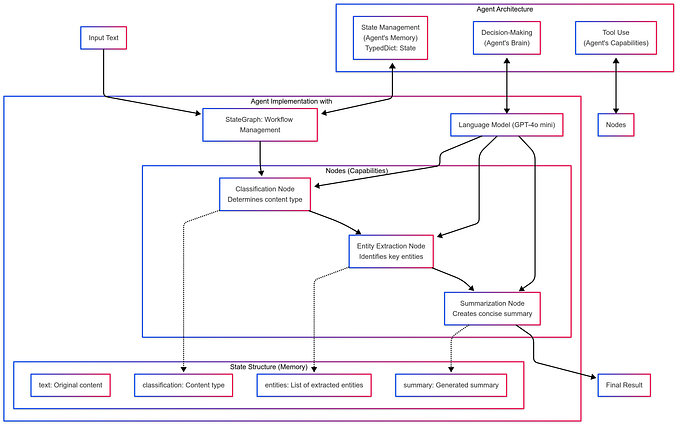The Origin of “Cyber” Species: From Cybernetics to Cyberpsychology
Cybernetics is the great common ancestor of all contemporary digital studies

Disclaimer: Overusage of ‘cyber’ throughout the text
On the day when the whole world is impatiently waiting for the Cyber-Monday sales to begin, I’m thinking of the origin of the word, or rather prefix, cyber.
Nowadays, we are assigning cyber- to nearly anything — cyberspace, cybersecurity, cyberoperation, cyberbehaviour, cybersociety.
During my time in academia (not too long ago), the word cyberpsychology also progressively started to appear among titles in contemporary academic papers we were analysing.
Cyberpsychology isn’t just about analysing your screen time or diagnosing your smartphone attachment (although we might touch on that), it’s a multidimensional exploration of how humans interact with technology and how these interactions shape our thoughts, behaviours, and, ultimately, our very sense of self.
Contemporary research in cyberpsychology currently revolves around topics of social media behaviour, cyberbullying, the ‘gaming psyche’, online relationships, online education, telemedicine… Again — pretty much every aspect of Western human life.
In the following article, I’m going to expand on some of the cyber-topics that go beyond Cyber-Monday, and hopefully give you:
1) some background and examples of cyber-anything research;
2) a sense of how redundant the use of “cyber” might be.
Now I’d like to start with the very beginning of digital studies.
Where does ‘cyber-anything’ come from?
During my second year at King’s College London, I was automatically enrolled to a module called Critical Debates In Digital Culture. It was mandatory. I wasn’t particularly excited for it, as I didn’t like how it sounded — vague, non-applicable in future work, critical.
It turned out to be one of my favourite subjects.
This is where I was introduced to cybernetics and understood how much knowledge of technology humanity had, and how enlightened researchers were back in the 20th century, when the dimensions of the tech evolution were nowhere close to what we see today.
With the explosive development of artificial intelligence, I believe we should revisit these origin sources of information technology and see what they have to offer.
To my knowledge, cybernetics is the first cyber- prefix word to penetrate global vocabulary as both a term and a a scientific field.
The term ‘cyber-’ finds its roots in cybernetics, a multidisciplinary field that emerged in the late 1940s, focusing on communication and control systems in living beings and machines.
Derived from the Greek word ‘kubernētēs,’ meaning ‘steersman’ or ‘to steer,’ cybernetics initially explored the workings of systems in various disciplines, providing the futuristic connotation associated with ‘cyber-’ in subsequent language formations.
Paul Pangaro, one of the contemporary cybernetics researchers, describes cybernetics as ‘the only discipline about systems that have a purpose, independent of whether they’re mechanical, social, electronic’.
Lastly, according to Merriam-Websted dictionary, cybernetics is:
the science of communication and control theory that is concerned especially with the comparative study of automatic control systems (such as the nervous system and brain and mechanical-electrical communication systems)
Cybernetics is not just about technology per se, it’s about technological mechanisms — this could be a property of biological functions as well.
It’s a research field that emerged and drove significant societal changes in the second half of 20th century, not merely scientific ones.
The popularity of cybernetics was influenced by a) science fiction and b) the military-industrial complex. Both US and USSR military, particularly during the Cold War, supported cybernetics, was seeing great potential applications in researching cybernetics and you can guess that most of the academic papers from that time were accomplished with funds from these governments.
Between 1950–1980, cybernetics was not only an academic field — these ideas quickly became a political and social weapon on one hand, but also a revolutionary driving force on the other.
Below is a Gen-Z-friendly graph I put together highlighting how perception of cybernetics varies across societies during the 20th century:

With time, cybernetics was reduced to the prefix ‘cyber,’ losing much of its former depth in public consciousness.
It must be said that even after the 1960s decline and criticism, many academics still continued to follow and explore the more complex aspects of cybernetics that go beyond cybersecurity, cyberspace and cybercommunication.
Below are a few notable authors that worked in the later half of the ‘cybernetic craze’ — from 1970 onwards:
- W. Ross Ashby: A British psychiatrist and a pioneer in the field of cybernetics. His work focused on the concept of “homeostasis” and the idea that systems, whether biological or mechanical, tend to regulate themselves to maintain stability.
- Gregory Bateson: An anthropologist, social scientist, and cybernetician who made significant contributions to the application of cybernetics in social sciences. His work on communication and systems theory influenced the development of family therapy.
- Gordon Pask: As aBritish cybernetician, Pask’s work included conversation theory and the development of interactive, adaptive learning systems. His work laid the foundation for the study of human-machine interaction.
- Paul Pangaro: An American cybernetician, Paul Pangaro has been active in the field of cybernetics and interactive media. He is known for his work on conversation theory and cybernetic design.
- Donna Haraway: While more recognised for her feminist and posthumanist perspectives, Donna Haraway’s “Cyborg Manifesto” has had a significant impact on the intersection of gender studies, technology, and cybernetics.
These authors were amongst the first to link technology to brain, behaviour, cultural differences, and social organisation at a time when industries and governments favoured the money-making and controlling aspect of tech development.
Past research in this area can be crucial to our adequate development and application of contemporary technology as well.
Cybernetics’ Legacy in Contemporary Studies
The intellectual journey of cybernetics, while often overshadowed by the ubiquity of ‘cyber’ in modern terminology, persists in the foundational concepts that have found a new home in contemporary neuroscience, psychology and cultural studies.
When researching for this article, I was surprised to see how many contemporary scientists are starting to recycle ideas from the past century and advancing our understanding of the psychological dimensions of digital technology and its impact on individuals and society.
Take Adam Gazzley— a neuroscientist, writer, and professor in University of California. Gazzaley’s work is the perfect example of how neuroscience and technology blend together. His research often delves into how digital tools and video games can be designed to enhance cognitive function and brain health. He explores the potential of technology to augment cognitive abilities and address neurological disorders.
Pamela Rutledge is another great psychologist focusing on the intersection of media, technology, and psychology. She explores the psychological impact of social media, digital communication, and virtual environments. Her research often addresses issues related to the psychological well-being of individuals in the digital age.
Another question that came to mind was whether “cyberpsychology” is actually a brand new discipline and if should be coined as a new academic term?
Some do.
I think what we’re seeing here is simply the evolution of already established fields of science under the inevitable influence of tech development. ‘Cyberpsychology’, as an emerging field opposed to psychology, does sound a little like somebody is trying to re-invent the bike (sorry!).
In today’s world, there is no non-cyberpsychology.
I’d like to end with a cheeky quote from New York Magazine to again emphasise on how much we have commodified the cyber-vocabulary:
Cyber is such a perfect prefix. Because nobody has any idea what it means, it can be grafted onto any old word to make it seem new, cool — and therefore strange, spooky. [New York magazine, Dec. 23, 1996]
Now, off we go to the Cyber-Monday shopping!








